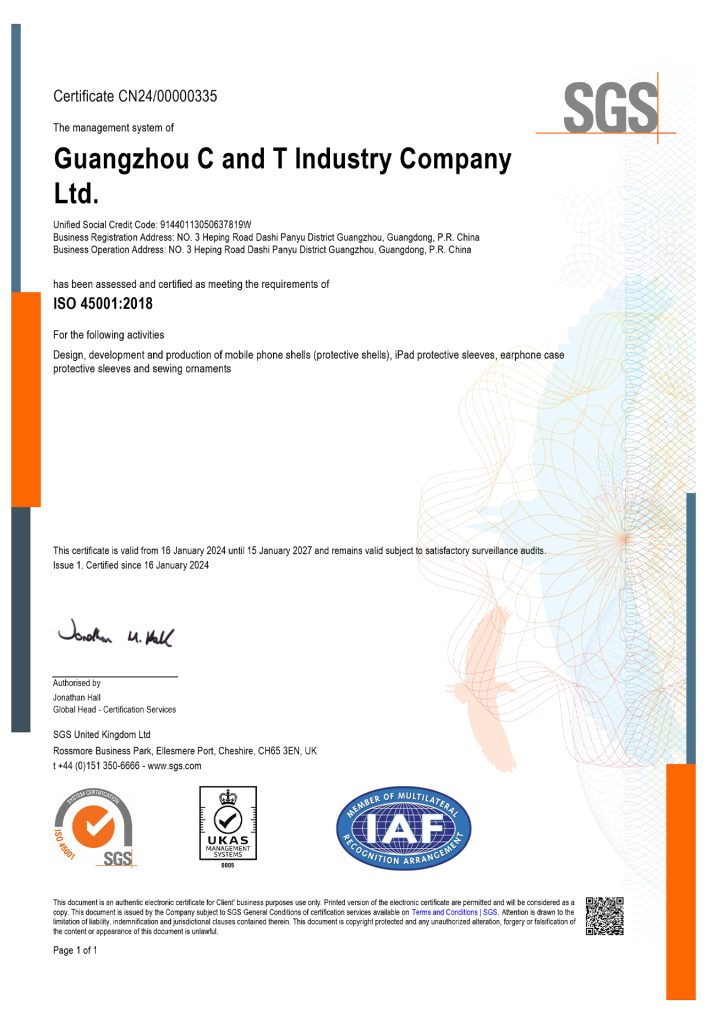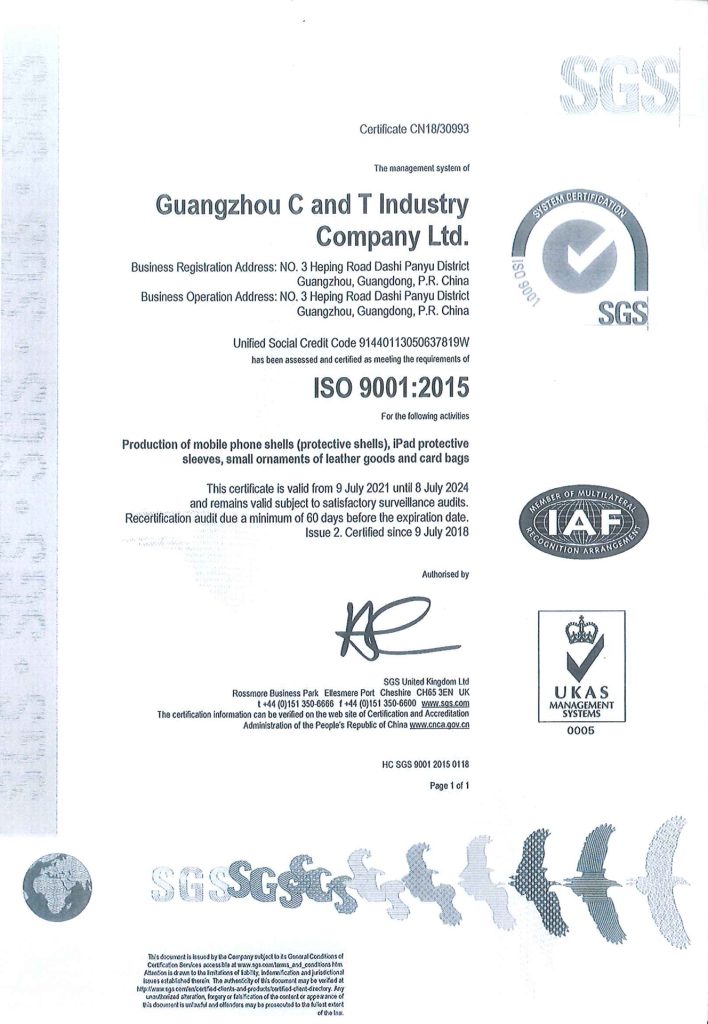In today’s fiercely competitive mobile accessories industry, phone case manufacturer certification plays a pivotal role in building trust, ensuring product safety, and expanding into international markets.
With the global phone case market projected to exceed $20 billion by 2025 (Statista), certifications are no longer optional — they are essential for survival and growth.
H2: Certifications Guarantee Material Safety
Phone case manufacturers use a wide variety of materials such as PC, TPU, and silicone.
Each material comes with its own safety and environmental concerns, which can be effectively addressed through proper certifications.
H3: Certified PC Materials
Polycarbonate (PC) is commonly used for its high durability and impact resistance.
However, uncertified PC may release harmful substances like BPA.
The phone case manufacturer certification such as the REACH certification, issued by the European Union, restricts over 190 hazardous chemicals, ensuring the material used is safe and eco-friendly.
H3: FDA-Certified Silicone
Silicone phone cases are favored for their skin-friendly texture.
FDA food-grade certifications guarantee that the material is safe for direct skin contact, and even accidental ingestion, making it ideal for family and kids’ use.
H3: TPU and ASTM Standards
Thermoplastic polyurethane (TPU) may become brittle under cold conditions.
ASTM-certified TPU materials are tested for flexibility, abrasion resistance, and weather performance to ensure long-term durability.
H2: Product Certifications Improve Market Competitiveness
Customers are more likely to choose phone cases that come with recognizable third-party certifications.
H3: MIL-STD-810H – Military-Grade Drop Protection
Phone cases with MIL-STD-810H certification undergo 26 drop tests from two meters onto various surfaces.
Passing this test proves the case can truly protect the device.
H3: Qi Wireless Charging Certification
With the increasing popularity of wireless charging, Qi-certified phone cases ensure efficient charging without overheating, interference, or energy loss.
H3: SGS Antibacterial Certification

Antibacterial phone cases are gaining popularity.
With SGS certification, products can prove their effectiveness in reducing bacteria like E. coli and Staphylococcus aureus by laboratory testing.
H2: Factory Certifications Reflect Operational Strength
Factory-level certifications prove a manufacturer’s ability to deliver consistently high-quality products while maintaining ethical and environmental standards.
H3: ISO 9001 – Quality Assurance

An ISO 9001-certified phone case factory has rigorous processes in place, from raw material selection to final inspection, reducing defect rates and improving product consistency.
Our factory, with over 10 years of experience in phone case manufacturing, holds certifications such as phone case factory certification including ISO 9001 and ISO 14001.
We supply high-quality products to clients worldwide who value reliable quality and compliance.
If you’re looking for a trustworthy certified phone case supplier, we invite you to explore our solutions at www.ctcase.com.
Our team is ready to provide quotes, samples, and production support for your brand or wholesale business.
H3: ISO 14001 – Environmental Standards
This certification encourages manufacturers to minimize waste, lower emissions, and optimize resource use.
Environmentally certified operations are more sustainable and cost-effective.
H3: BSCI – Social Compliance
BSCI certification focuses on fair labor, safe working conditions, and ethical business conduct, helping companies build trust with responsible buyers.
H2: Certifications Help Wholesalers Avoid Business Risks
For wholesalers, working with a certified phone case manufacturer reduces the risk of defects, customer complaints, and costly returns.
Studies show that uncertified products face up to 40% more returns due to quality issues.
As a long-standing certified phone case supplier, we help our partners meet strict market requirements with stable product quality, on-time delivery, and complete documentation.
H2: Certifications Are Essential for Global Trade
When entering international markets, certification is often a legal requirement.
CE certification is mandatory in the European Union.
FCC certification is required for electronic accessories in the United States to ensure electromagnetic compatibility.
Failing to meet these certifications can result in customs issues, fines, or even product bans.
Having the right certifications in place gives manufacturers the green light to trade globally.
Conclusion
Phone case manufacturer certification is essential throughout the entire production chain — from raw material sourcing to end-user delivery.
It reflects a manufacturer’s commitment to quality, safety, sustainability, and market readiness.
For wholesalers and brands, choosing a certified phone case manufacturer or certified phone case supplier ensures consistent quality, smoother operations, and stronger consumer trust.
In a market where quality matters more than ever, certifications aren’t just paperwork — they’re a powerful competitive advantage.




